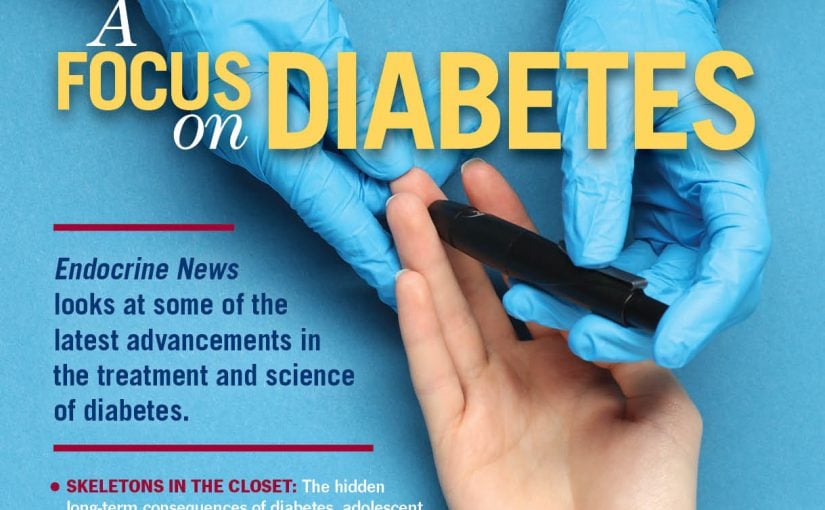Variants in genes that mediate fibroblast growth factor 21 – a hormone secreted by the liver that acts to regulate the body’s response to starvation – have for the first time been linked to severe insulin resistance, according to a paper recently published in the Journal of the Endocrine Society.
Researchers led by Stephen Stone, MD, a pediatric endocrinologist at Washington University School of Medicine in St. Louis, report on the case of a 12-year-old female who presented with markers of insulin mediated pseudoacromegaly (IMPA), a rare insulin resistance syndrome. The patient had acanthosis nigricans, hirsutism, and acromegalic features characteristic of IMPA. “To date, the molecular mechanism for IMPA remains unknown,” the authors write. “However, it has long been hypothesized that these patients must harbor a defect downstream of the [insulin receptor] in which the glucose lowering property of insulin is impaired while the growth promoting activity of insulin is preserved.”
Stone and his team conducted biochemical and genetic studies on the female patient and her family, with the objective of defining the genetic and molecular etiology of IMPA. The authors describe the case study of the proband and her family, including the clinical workup that details the adolescent female’s metabolic abnormalities as well as how these features have led to teasing from her peers causing her to experience depression.
The authors also detail the genetic testing performed on the proband, her parents, and her sister. “We identified 1108 predicted deleterious variants shared between the proband, her sister, and one of her parents,” the authors write. “This list was narrowed down to 11 candidate variants based on gene set enrichment analysis of relevant insulin and IGF1 pathways. From this list, we selected 2 rare, predicted deleterious variants in genes critical to the fibroblast growth factor 21 (FGF21) signaling pathway in [genes] FGFR1 and KLB [which form a transmembrane receptor-cofactor complex that binds FGF21 and activates intrinsic tyrosine kinase activity and subsequent signal transduction].”
The researchers found that the proband has extremely elevated insulin and elevated serum FGF21 for her age and that in vitro studies showed that genetic variants of FGFR1 and KLB reduced FGF21 signaling. “These studies suggest that the variants in FGFR1 and KLB induce resistance to the insulin sensitizing effects of FGF21,” the authors write.
“We found that the proband carried mutations in the FGF21 receptor complex and performed tissue culture-based studies to demonstrate that these were functional/pathogenic mutations,” Stone tells Endocrine News. “This study demonstrates the first ever link between FGF21 and severe insulin resistance.”

